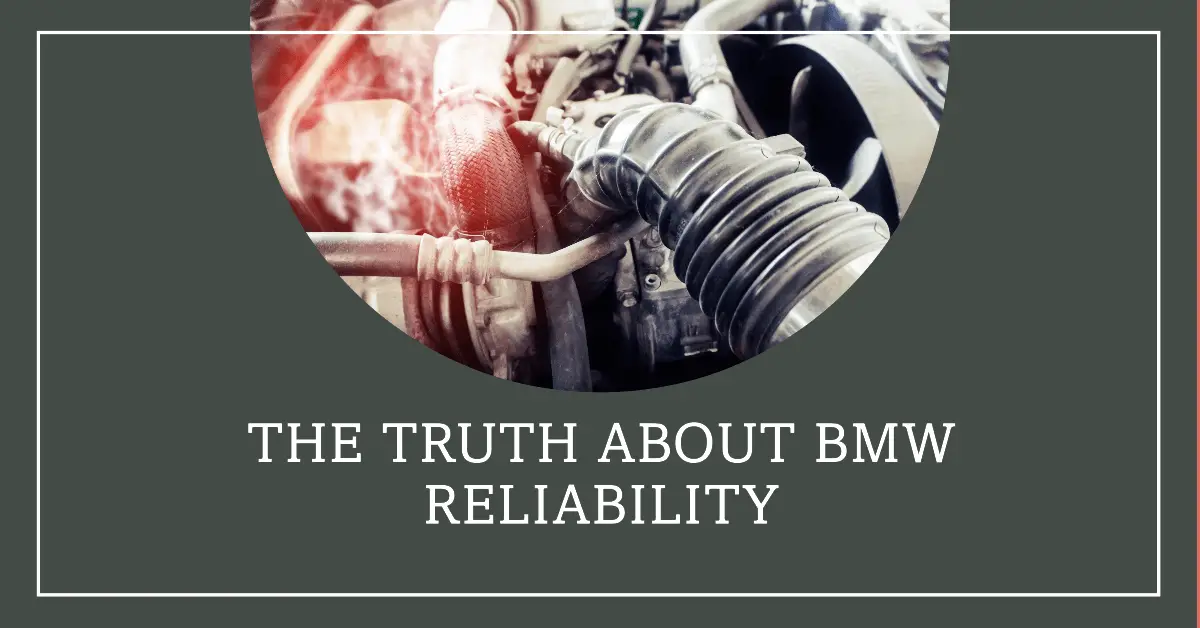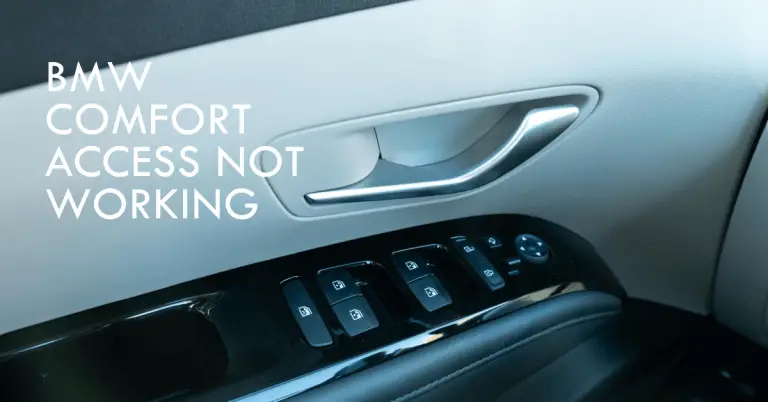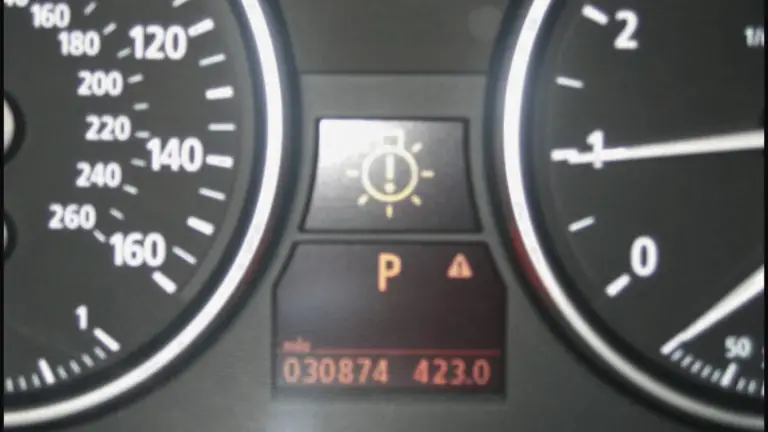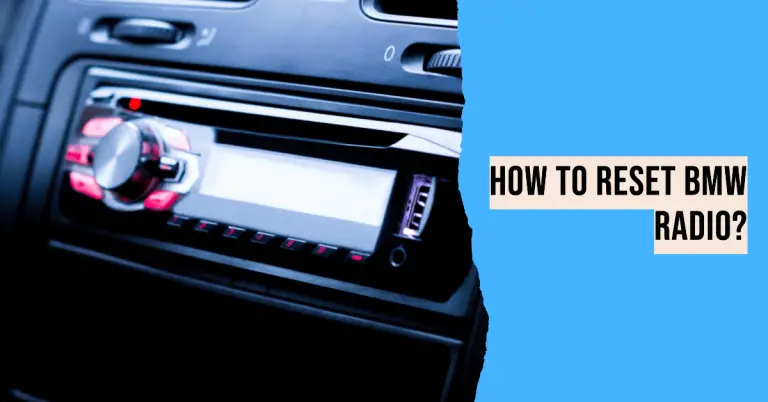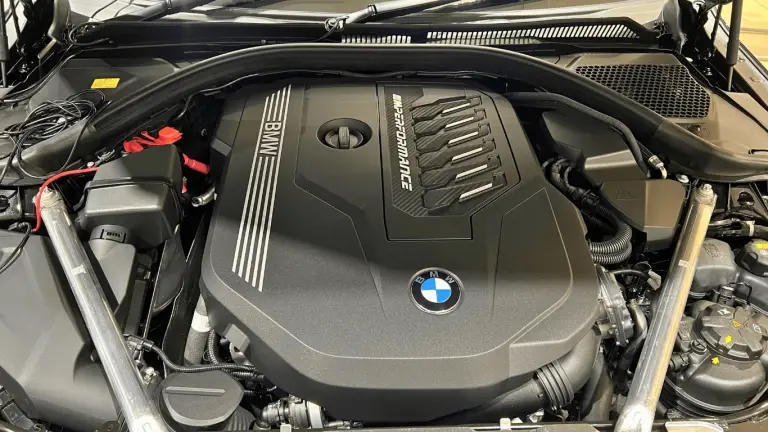Why Are BMWs So Unreliable? An Expert Analysis
BMW is a coveted luxury vehicle brand that conjures images of finely crafted German engineering. Yet many BMW owners report frustrating reliability issues that can make owning one a stressful and costly endeavor. So are BMWs actually unreliable, and if so, why?
In short, BMWs tend to be less reliable than other brands largely due to more complex technology, higher repair costs, and specific problem areas affecting certain models. However, many BMWs can be quite reliable when properly maintained and driven conservatively.
This article will take an in-depth look at common BMW reliability issues, examine why the brand is considered unreliable by many, study expert views, and provide tips to improve longevity. We’ll also look at the cost of ownership and whether BMWs are worth it despite frustrating reliability problems.
A Reputation for Unreliability
BMW consistently ranks below average in reliability among luxury car brands, according to consumer surveys and reports. In the J.D Power 2022 U.S. Vehicle Dependability Study, BMW came in 32nd out of 33 brands, ahead of only Land Rover [1]. The brand also placed in the bottom third of Consumer Reports 2022 predicted reliability ratings [2].
Owner-reported issues compiled by Dashboard Light show BMW behind rivals like Lexus, Mercedes-Benz, and Audi for frequency of problems [3]. High-end models like the 7 Series sedans and X5 SUVs fare the worst.
RepairPal, which tracks repair costs and frequency, gives BMW a reliability rating of just 2.5 out of 5.0. They estimate 12% higher than average annual repair costs compared to all vehicles. The average BMW owner spends about $968 on maintenance each year [4].
So where does this reputation for questionable dependability come from? There are a few key factors.
Common BMW Reliability Issues
1. Frequent Engine Problems
Many BMW reliability headaches come down to the engine. Oil leaks and gasket seals wearing out prematurely plague many models, costing thousands in repairs [5]. The 2007-2013 3 Series and 5 Series cars with the naturally aspirated six-cylinder N55 engine are notorious for oil leaks and issues with the valve cover and oil filter housing gaskets [6].
Turbocharged engines also cause grief, with the twin-turbo N54 found in models like the 135i and 335i plagued by fuel pump and turbo failures before 60,000 miles [7]. The 2-Series is another turbo powertrain problem child.
Timing chains and guides wear down faster than expected, sometimes before even 70,000 miles in four- and six-cylinder motors, requiring a labor-intensive $2000+ repair job [8].
2. Faulty Fuel Pumps
Expensive high-pressure fuel pumps (HPFP) are a well-known failure point, especially on six-cylinder turbo engines. Replacing the pump can cost upwards of $1500.
Symptoms of a failing pump include long cranking times and sudden stalling while driving. BMW extended the warranty on many affected models to 10 years/120,000 miles, but many pumps still fail prematurely [9].
3. Electrical Gremlins
Like many European brands, BMWs suffer their share of electrical issues from minor annoyances to major system failures. Common problems range from glitchy console displays and warning lights to malfunctioning sunroofs and CD players. Shorts can cause repeated electrical component failures [10].
The intricately programmed computer systems are prone to bugs and errors that can disable various features and functions. Faulty wiring harnesses and connectors add to the headaches. It’s not uncommon for dashboards to simply stop working for no apparent reason.
4. Expensive Suspension Repairs
While the ride and handling are sublime when maintained properly, suspension components wear faster than expected. Control arm bushings, ball joints, tie rods and even shocks and struts often need replacing earlier compared to Japanese rivals [11]. This adds up quickly with labor charges.
5. Faulty Transmissions
BMW automatic gearboxes have some problem areas like premature mechatronics failures, fluid leaks, loose shift paddles, and erratic shifting behavior [12]. The GM-sourced 6HP26 transmission found in the 5 and 7 Series sedans is notoriously unreliable after about 60-70k miles.
Manual gearboxes typically hold up better, but clutch replacements are common by 100,000 miles in high-performance M models. Dual-clutch automated manuals also have fairly high repair rates.
6. Other Problem Areas
A sampling of other frequent issues includes leaky sunroofs, glitchy iDrive systems, faulty warning sensors, quickly wearing brake rotors, short-lived water pumps, and flimsy interior trim parts. The electronics and certain plastic components just don’t hold up as well compared to rivals after 5-6 years of ownership.
What Makes BMWs Unreliable?
So what factors contribute to this reputation for questionable dependability? Here are some of the main reasons:
Complex Technology
Modern BMWs are packed with complex engineering and advanced infotainment technology. More to break means more problems. All those sensors, adjustable parts, sophisticated emissions controls, and intricate computerization increase the possibility of issues.
Intensive Maintenance
These hi-tech machines require meticulous, specialized care to achieve longevity. BMW maintenance calls for frequent fluid changes, system flushes, and tune-ups. Required intervals are as low as every 5-10k miles for some items [13].
Falling behind on service quickly multiplies problems. But not all owners keep up with the demanding schedule, which adds to the perception of unreliability.
More Expensive Parts + Labor
BMW parts and dealership repair costs are among the highest of any brand. Even minor repairs can quickly run $500+, while major issues often cost thousands. This understandably frustrates owners.
Engine-Specific Problems
Certain BMW engines have inherent design flaws and weaknesses that lead to widespread failures, like the N54 turbo and N63 V8 bearing seal leaks. Some issues like fuel pump and turbo failures are practically expected before 100k miles in problematic motors [14].
Poor Resale Value
High maintenance needs and repair costs take a toll on resale value, especially for models with bad reliability. This makes the total cost of ownership over 5-10 years much higher than competitors.
BMW Reliability by Model
Reliability varies quite a bit depending on the specific BMW model. Some have proven fairly dependable, while other models chronically disappoint owners.
Most Reliable BMW Models:
- BMW 328i (F30 generation) – This well-rounded 3 Series ranks among BMW’s most reliable recent offerings. The turbo four-cylinder is more robust than six-cylinder options. Watch for oil leaks, fuel pump, and electrical issues.
- BMW X3 xDrive35i – For an SUV, the X3 holds up well aside from typical oil leaks. The straight-six offers plenty of smooth power. The xDrive AWD system requires periodic fluid changes.
- BMW 528i (F10 generation) – This practical mid-size 5 Series avoids major issues if you stick with the turbo four-cylinder over the 550i’s problematic V8. Electronics, gaskets, and a/c system problems are common concerns.
Least Reliable BMW Models:
- BMW 335i (E90/E92/E93) – The turbo straight-six suffers fuel pump, turbo, and carbon buildup problems. Very expensive to own out of warranty.
- BMW 7 Series (F01/F02) – Flagship luxury sedan is plagued by transmission problems and electrical gremlins while costing a fortune to maintain properly.
- BMW X5 (E70) – BMW’s mid-size SUV routinely needs costly repairs like leaky fuel lines, failed transfer case pumps, and problematic air suspension compressors.
Expert Views on BMW Reliability
Here’s what some BMW specialists and automotive experts have to say:
“Properly maintained, BMWs are generally reliable vehicles but they require meticulous attention to maintenance and more frequent service intervals than comparable Japanese luxury brands.” – BMW Master Technician
“Preventative maintenance is absolutely critical to the longevity of BMW engines. Issues become exponentially more expensive if problems are allowed to persist.” – BMW Service Manager
“BMW reliability gets a bad rap because maintenance costs are very high compared to mainstream brands. But they aren’t inherently unreliable with proper care.” – Automotive Analyst
Cost of BMW Ownership
Owning a BMW, especially out of warranty, means accepting higher maintenance and repair costs. Here are some sample ownership costs:
- Oil change – $120-$250
- Brake pad replacement – $400-$800
- New battery – $200-$400
- Timing chain/belt service – $1200-$2500
- Water pump replacement – $700-$1200
- Turbocharger – $1600-$2500
- Control arm replacement – $650 per arm
- Head gasket replacement on six-cylinders – $3400+
- Automatic transmission rebuild – $5000+
BMW recommends more frequent maintenance services than most automakers, which also drives up costs. Expect to visit the dealership every 5-10k miles for fluid changes, inspections, and software updates which typically run $200-$500 per visit.
It’s not uncommon for total maintenance and repair costs to reach $5,000+ annually out of warranty, especially on high-end models. That’s hard to swallow for owners used to cheaper Asian vehicles.
Tips to Improve BMW Reliability
Here are some expert-recommended tips to help your BMW go the distance:
- Follow scheduled maintenance religiously based on mileage and age. Don’t cut corners or skip services to save money.
- Address any small issues immediately before they cascade into major repairs. Listen for new noises and don’t ignore warning lights.
- Use quality gasoline and the recommended motor oil viscosity. Don’t stretch oil changes past 10k miles.
- Keep the engine bay meticulously clean to spot leaks right away.
- Upgrade problematic parts preemptively, like fuel pumps in N54/N55 engines.
- Keep BMW software and infotainment systems updated.
- Drive gently and avoid excessive revving to reduce wear. Let the engine properly warm up before hard acceleration.
- Consider an extended warranty if buying a model with costly reliability issues.
Are BMWs Worth Buying?
The ultimate decision of whether to purchase a BMW comes down to personal factors:
- Driving passion – Few automakers can match BMW’s combination of performance, luxury, and driving engagement. The splendid handling and refinement delight enthusiasts.
- Proper maintenance – Budgeting for preventative maintenance and addressing issues promptly goes a long way towards reliability.
- Cost management – Leasing a BMW can be a more cost-effective option compared to buying. You pay for the maintenance-free years upfront without worrying about depreciation or future repairs.
While reliability issues rightfully hurt BMW’s reputation, the rewarding driving experience may outweigh the hassles for some buyers. Understanding the common problems before purchase allows you to make an informed decision weighing the pros and cons.
Conclusion
So are BMWs unreliable? The short answer is yes, they statistically underperform in reliability surveys and require more maintenance than average vehicles. However, many BMW engines and models have proven quite durable when diligently serviced and driven responsibly. Prioritizing preventative maintenance is absolutely essential for longevity though it adds to the overall cost of ownership. Going in, BMW buyers should factor in higher repair bills down the road.
The takeaway is that BMW unreliability is strongly tied to infrequent maintenance on complex, high-strung machines. While no automaker is perfect, BMW can’t hide behind excuses for reoccurring issues like premature fuel pump failure and turbo defects. Seeking out well-maintained examples or leasing helps reduce the financial pitfalls. For loyal BMW fans who relish world-class driving dynamics and styling, the higher ownership costs may be worth the added peace of mind.

